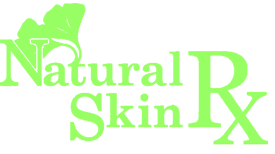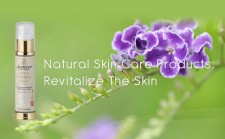 Skin is a made up of a fascinating matrix of substances that include mostly proteins, fats, and water. Skin cells of several kinds have the task of managing this matrix to keep your skin healthy and vibrant. Fortunately, your skin also does a great job of controlling what gets into it and what doesn’t. One of the main external substances that does not penetrate your skin is water itself. Imagine if it did. Every time you took a swim or stood in a shower you would bloat up like a balloon with all the water coming through your skin. In fact, generally anything that is dissolved in water is also blocked or at least severely inhibited from getting into your skin. The term that describes the ability of skin to repel water and water-soluble substances is hydrophobic (i.e., ‘water-fearing’). Skin occupies the other end of the spectrum, meaning that it allows fat-soluble substances to penetrate it. This means that skin is lipophilic (i.e., ‘fat-loving’).
Skin is a made up of a fascinating matrix of substances that include mostly proteins, fats, and water. Skin cells of several kinds have the task of managing this matrix to keep your skin healthy and vibrant. Fortunately, your skin also does a great job of controlling what gets into it and what doesn’t. One of the main external substances that does not penetrate your skin is water itself. Imagine if it did. Every time you took a swim or stood in a shower you would bloat up like a balloon with all the water coming through your skin. In fact, generally anything that is dissolved in water is also blocked or at least severely inhibited from getting into your skin. The term that describes the ability of skin to repel water and water-soluble substances is hydrophobic (i.e., ‘water-fearing’). Skin occupies the other end of the spectrum, meaning that it allows fat-soluble substances to penetrate it. This means that skin is lipophilic (i.e., ‘fat-loving’).
Organic Acids Are Kept Out
Without getting too technical, organic acids are chemical groups with a certain arrangement of carbon and oxygen atoms that results in a molecule or part of a molecule being water-soluble. Many all-natural skin care products contain organic acids, such as vitamin C, alpha-hydroxy acids, and glycolic acid. Since skin is hydrophobic, organic acids absorb into it very slowly or not at all. Instead, these acids tend to act as oxidants that sit on the outer layer of skin, where they cause inflammation. Skin cells do plump up and lose their wrinkles in response to inflammation, although such a response is due to swelling because of the irritation.
Big Molecules Don’t Get In Either
Collagen is a large, highly complex protein that provides structural strength to skin and connective tissues. Logic has it that applying collagen to skin helps to strengthen this internal matrix protein. This logic, however, is wrong. Collagen is too large to penetrate the skin. If anything, large molecules such as collagen act to absorb moisture on the skin’s surface right where they are applied. This is fine. It just doesn’t do anything for internal collagen.
Semi-Fatty Herbal Ingredients
To truly enhance skin cell growth and collagen structure, it is important to apply skin care products that contain substances that will both penetrate the skin and are known for their ability to influence collagen, either by enhancing its synthesis or by inhibiting its breakdown. Many ingredients derived from herbs do both. Indeed, a wide variety of herbal ingredients have been found to fit this dual requirement. Moreover, these same ingredients typically also boost the production of another key protein in the skin, elastin. This substance, as its name implies, imparts elasticity to skin. It is important for keeping skin flexible and supple. Examples of the kinds of herbal ingredients that penetrate skin include a class of natural products that chemists have named sterol glycosides. A sterol glycoside is comprised of two parts, one being a fatty sterol part and the other being a water-soluble sugar part. The sterol part enables these molecules to penetrate the lipophilic matrix of the skin. Overall, sterol glycosides are semi-fatty substances that can penetrate skin and, once inside, influence the metabolism of skin cells. Astragalus is one of the top skin care herbs because it produces sterol glycosides that benefit collagen and elastin. These Astragalus compounds are unique to this herb so they are classified separately as astragalosides. Similarly, ginseng produces a set of unique sterol glycosides, called ginsenosides. Many other herbs also produce unique sterol glycosides, as well as a wide variety of other fatty and semi-fatty substances that penetrate skin and provide benefits for skin health. Herbal formulas represent truly important skin care products because they provide ingredients that actually get into the skin, where they can enhance metabolism for its good health. All of the products by Jadience Herbal Formulas provide an array of herbs that benefit skin health. Astragalus and ginseng play starring roles in many of these formulas, such as the Purifying Toner and the HydraNourish Body Lotion.


